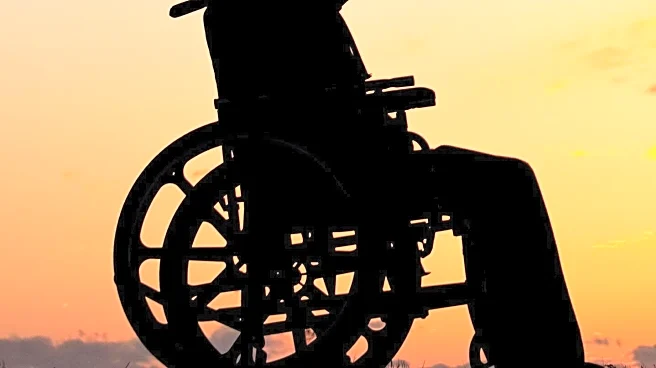What's Happening?
The article discusses the pervasive issue of loneliness among individuals with disabilities, highlighting the experiences of Rebecca, a woman with cerebral palsy, and Joni Eareckson Tada, a quadriplegic and disability advocate. The narrative underscores
the challenges faced by disabled individuals, such as social stigma and limited mobility, which contribute to feelings of isolation. Joni Eareckson Tada shares her personal journey of overcoming loneliness by fostering community connections and emphasizes the importance of looking outward to help others as a means to combat isolation. The article also references former U.S. Surgeon General Vivek Murthy's views on the significance of community and human connection for health and well-being.
Why It's Important?
The issue of loneliness among disabled individuals is significant as it affects mental health, longevity, and overall quality of life. The article highlights the broader societal impact of isolation, which can lead to increased healthcare costs and reduced productivity. By fostering community engagement, individuals with disabilities can find purpose and satisfaction, which not only benefits them but also enriches the community. The narrative suggests that creating inclusive environments and opportunities for disabled individuals to contribute can mitigate the loneliness epidemic, ultimately leading to a more compassionate and connected society.
What's Next?
The article suggests practical steps for building community among disabled individuals, such as participating in clubs, volunteering, and removing barriers to inclusion. It encourages non-disabled individuals to actively engage with and support those with disabilities, fostering environments where everyone can contribute and feel valued. This approach could lead to policy changes and increased awareness about the importance of inclusivity and community support for disabled individuals.
Beyond the Headlines
The article touches on the ethical and cultural dimensions of disability and loneliness, emphasizing the need for societal change in how disabled individuals are perceived and treated. It calls for a shift from viewing disability as a limitation to recognizing the potential for disabled individuals to contribute meaningfully to society. This perspective could lead to long-term cultural shifts towards greater empathy and understanding, reducing stigma and promoting inclusivity.
















